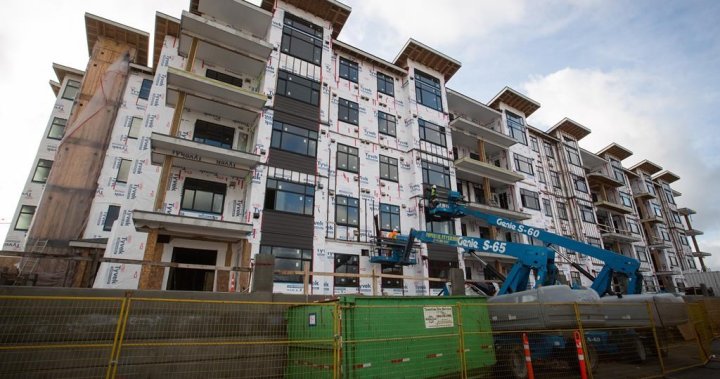
British Columbia is facing an acute shortage of property managers as a growing number of people make their homes in strata properties.
More than 1.5 million people are estimated to live in B.C.’s 30,000 strata properties.
But finding people to manage those properties is getting increasingly difficult, according B.C.’s Condominium Home Owners Association (CHOA).
“We could easily use 200 or 300 managers in the industry tomorrow and it probably wouldn’t fill the gaps,” CHOA executive director Tony Gioventu told Global News.
“It is getting dire, and it’s not just B.C., it’s across the country.”
In British Columbia, strata property managers must be licensed, a process that involves passing an exam and a criminal record check.

But the process doesn’t end there. Because the job is so complex, licensees still need another six months to a year of training and supervision before they’re prepared to manage on their own, according to those inside the industry.
Along with the basics of building operations and maintenance, mangers must also be familiar with a stack of regulations and legislation, including the B.C. Strata Act, the Residential Tenancy Act, the B.C. Human Rights Code, strata bylaws and B.C.’s civil resolution tribunal.
“We can’t just go out to the street and say hey, you look like a great strata manager and start them tomorrow. What we need to do is have more people licensed,” Chris Churchill, president of FirstService Residential said.
“Once they’re licensed, they still can’t manage properties. They still need at least six months to a year actively managing either in a mentorship or a training program … and what that does is allow someone to properly manage properties in a full capacity.”
Churchill said the industry is already operating at about 50 per cent capacity. Making matters worse, about half of the province’s current crop of strata managers are baby boomers who are within five years of retirement, he said.
On top of that, managers are dealing with new complications like the province’s move to allow rental in most strata properties, all while the size of buildings increases.

Those larger buildings mean mangers who could traditionally take on a portfolio of up to a dozen smaller properties are limited to handling four or five.
The result is a growing number of strata corporations who simply don’t have a manager, leaving the job in the hands of their strata council or volunteers.
“What ends up happening is you have improper maintenance, deferred maintenance, the buildings simply aren’t being upkept the way they should be, because they don’t have that voice of experience helping them out,” he said.
Both Churchill and Gioventu say the industry needs help with recruitment and training if the problem is to be solved.
“We need the help to be able to attract people to this industry so that all of these beautiful buildings going up can have proper representation,” Churchill said.
“We also need help with education. The buildings going up are much more complex, so we need help to get new strata managers up and going … and lastly we need training grants.”
Gioventu said he’d like to see a program added to one of B.C.’s technical colleges that educates and trains strata property managers before they take their licensing exam, so that they’re job ready day one.
“We need to find a way of capturing graduates whoa re coming out of high school and are looking for a career choice,” he said. “This is really a great career, but it needs to be well supported.”
B.C. Housing Minister Ravi Kahlon was not available for an interview on the topic.
In a statement, B.C.’s Ministry of Housing said the shortage of managers existed prior to the province’s changes around strata rental restrictions, but said it was monitoring the new regulations implementation and their effects.

© 2023 Global News, a division of Corus Entertainment Inc.
















